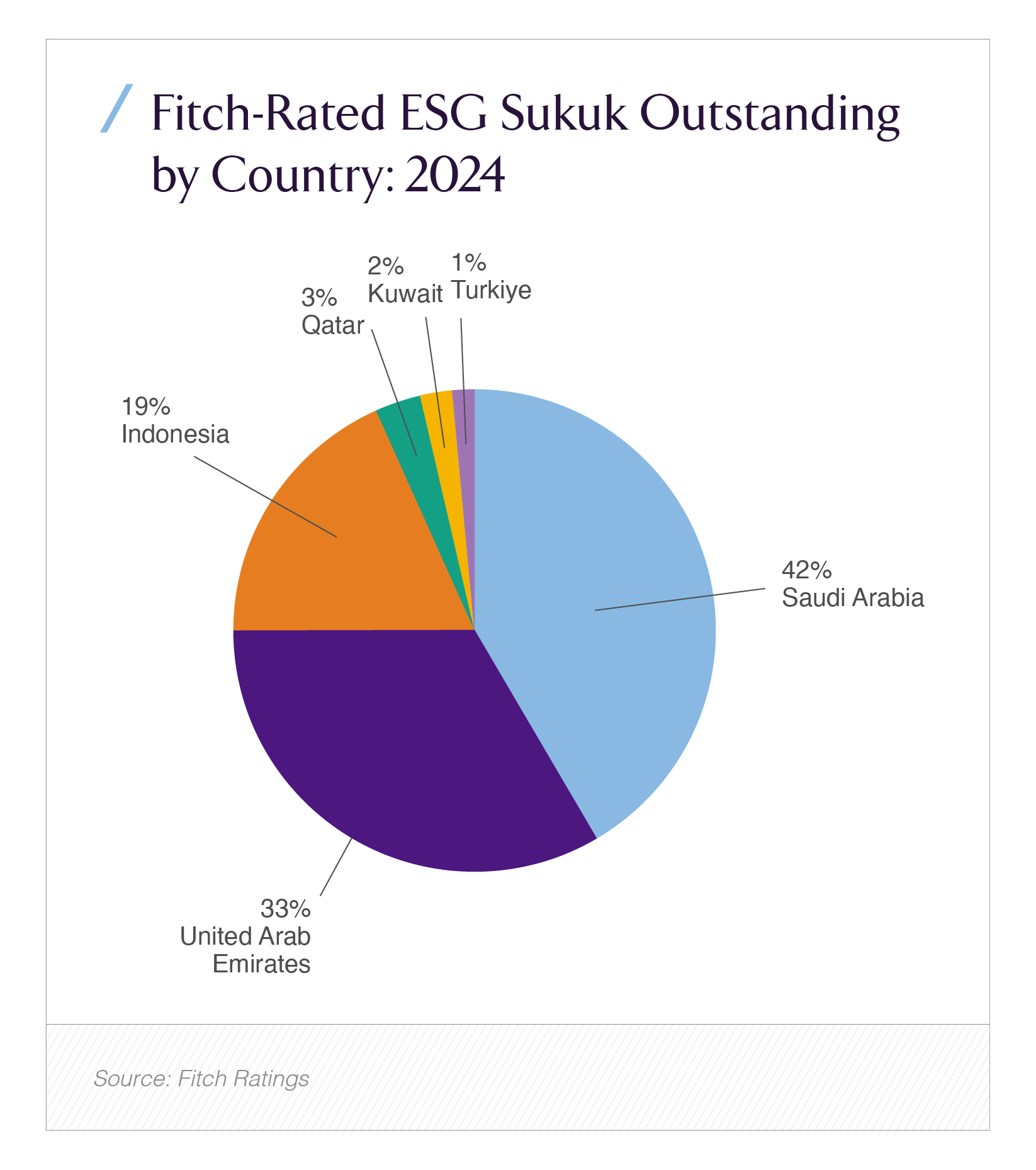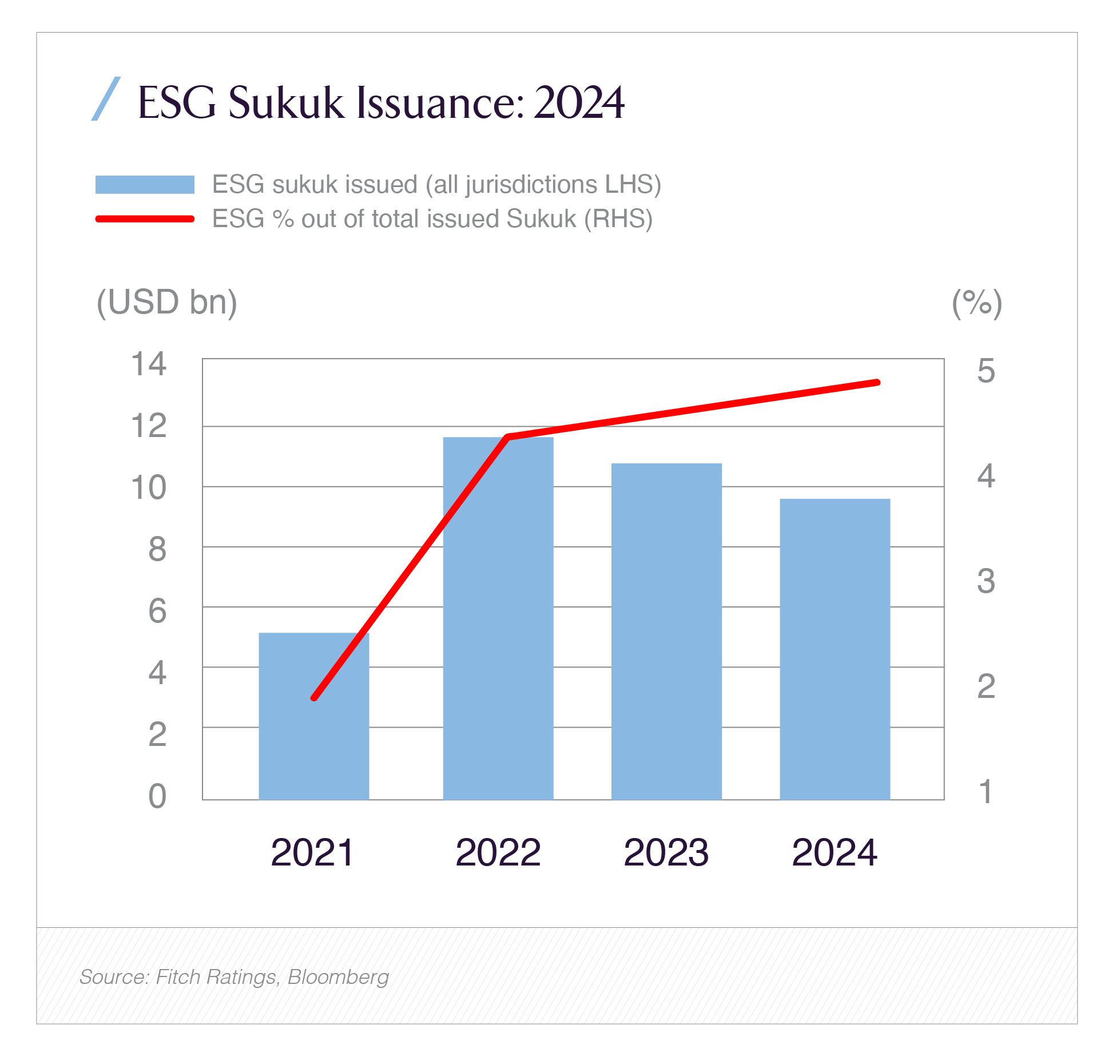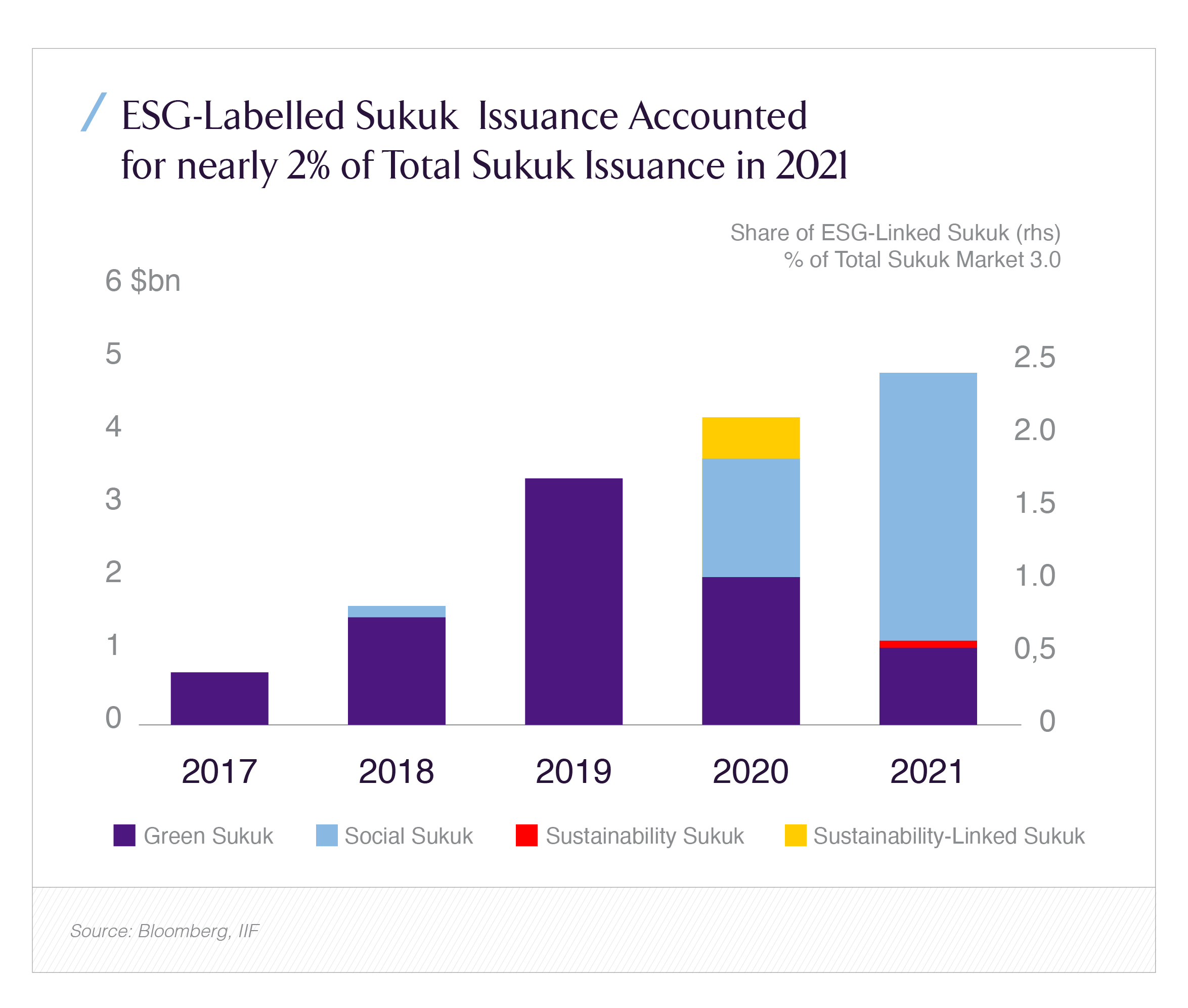In June 2025, Saudi Arabia managed to issue green and sustainability-linked SAR 2.35 billion (~$628 million) sukuk. The issuance was a demonstration of the increasing interest of the Kingdom in sustainable finance, in line with the global trend of the environmental, social, and governance (ESG) factors becoming an essential component of the finance and investment landscape. The successful issuance is a good indication of a change in the way Saudi Arabia funds the projects that are in line with its Vision 2030 agenda, which requires the diversification of the economy and a greater focus on sustainable development.

Leadership of Saudi Arabia in issuance of Sukuk
Saudi Arabia is not new to issuance of sukuk as it has been a leader in Islamic finance in the world. The Kingdom has emerged as a powerhouse in the sukuk market both regionally in the Gulf Cooperation Council (GCC) and globally. The issuance of Sukuk in Saudi Arabia, particularly over the last few years, is closely connected to the larger plan of the country to establish itself as a major player in the field of sustainable finance in the world.

As per the reports of the Saudi National Debt Management Center (NDMC), the nation issued over 31 billion dollars worth of 41 sukuk in the first quarter of 2025 alone, which is more than 60 percent of the entire primary debt issuances in the region. This huge issuance level highlights the centrality of the Kingdom in the regional debt markets, where it continues to lead other countries in the value of sukuk issued. This increase in issuance also cements the position of Saudi Arabia as a leader in the financial sector of the GCC.
Sukuk, a Shariah-compliant version of a traditional bond, has grown in the market at a fast rate, with Saudi Arabia taking the lead. The total value of the global sukuk market is expected to amount to 190-200 billion in 2025. A significant part of this growth is caused by the increase in interest in sustainable and green sukuk which has become an inseparable part of the economic transformation of the Kingdom.
Projected Development of the Sukuk Market across the World
The sukuk market in the world has a huge potential to grow in the next few years. By 2025, the overall amount issued in the sukuk market is projected to surpass the mark of $190 billion, with green and sustainability-linked sukuk products being the priority. This has been driven by the rising demand for ESG-aligned investments especially as investors around the world are increasingly aware of the environmental and social effects of their investments.
It is worth noting that it is expected that approximately 80 billion dollars of this issuance will be issued in foreign currencies. This represents the desire of Saudi Arabia to be a leader in the global sukuk market to allow the entry of foreign capital in the sustainable finance environment in the Kingdom. Growth of the sukuk market, especially in sustainable finance, presents significant opportunities to investors in the region to diversify their portfolios through responsible investing.
Fitch Ratings predicts that the aggregate value of outstanding sukuk will exceed 1 trillion dollars by 2025, which makes the sukuk market the key factor in the global debt capital markets, especially in the Middle East and Southeast Asia. The overall growth is largely contributed to by the increasing role of Saudi Arabia as a leader in sukuk issuance as the Kingdom seeks to mobilize investment in numerous sustainable projects in line with the vision 2030.
ESG-Compliant Sukuk
The growing popularity of ESG-compliant sukuk is one of the most remarkable tendencies on the sukuk market. Environmental, social, and governance principles (ESG) have become increasingly popular in the financial markets in the last ten years. Investors are increasingly focusing on sustainability and the sukuk market is not an exception.
The Kingdom of Saudi Arabia has not been left behind as it has integrated ESG standards in its sukuk. This trend is seen in the recent issuance of SAR 2.35 billion (US$628 million) green, sustainability-linked sukuk. These sukuk are specifically linked to the funding of projects that enhance environmental sustainability, including the renewable energy projects and green infrastructure projects. Consequently, Saudi Arabia is emerging as a leader in Islamic green finance, which has been gaining the attention of investors in the region and abroad.
International sukuk issuers, including issuers in Saudi Arabia, are becoming more interested in aligning their products with sustainable development goals (SDGs), which are an international agenda to address climate change, poverty reduction, health and education outcomes. ESG-linked sukuk provides an opportunity for investors to invest their money in projects that not only generate financial returns but also have a positive impact on society and the environment.
It is predicted that sustainable sukuk issuance will be between 10 billion and 12 billion in 2025 globally. Saudi Arabia is one of the countries that wants to play a major role in this expanding area as part of its sustainable finance agenda. Connecting sukuk issuance with green projects and sustainability objectives, the Kingdom will be playing a significant role in helping the world achieve sustainable finance.
Regulatory Development and Sukuk Issuance
The trend in regulation is also contributing significantly to the future of the sukuk market. A more favorable environment to issue sukuk has been achieved by the introduction of new regulations to ensure that the issuance process is more transparent and in line with global ESG standards. This has enabled Saudi Arabia to access a wider pool of investors especially those with a mandate to invest in ESG compliant investments.

The introduction of new structures of green and sustainability-linked sukuk is one of the most significant regulatory developments affecting the sukuk market, which is now gaining traction. The Accounting and Auditing Organization for Islamic Financial Institutions (AAOIFI) has come up with Standard 62, according to which the issuers of sukuk are required to transfer the legal title of underlying assets to investors. This norm is likely to harmonize sukuk issuances and make them more in line with the Islamic financial principles.
These regulatory reforms increase the credibility of sukuk issues and hence they are more appealing to local and foreign investors. But these regulatory reforms also come with complexities especially on the legal structuring and the administrative burden on the issuers. Nevertheless, Saudi Arabia is one of the first countries that have implemented such regulatory practices and has become a leader in the issuance of both conventional and ESG-linked sukuk.
Vision 2030 of Saudi Arabia and Sustainable Finance
Vision 2030 strategy of the Kingdom is a long-term plan to transform the economy of Saudi Arabia by diversifying its economic base and decreasing the dependence on oil revenues. Sustainable finance is also in the scope of this vision, as it focuses more on applying green and sustainability-based financing techniques to finance infrastructure projects and other programs that will support the developmental objectives of the Kingdom.
One of the most important instruments that Saudi Arabia is employing to achieve the objectives of sustainable finance as set in Vision 2030 is the issuance of green and sustainability-linked sukuk. Such sukuk are to finance renewable energy projects, green buildings, clean transport infrastructure and other projects that can help the country to develop sustainably. The Kingdom has shown its interest in financing these projects using sustainable finance as the sukuk market has grown tremendously.
Through the ESG-linked sukuk, Saudi Arabia is not only achieving its diversification objectives in the economy, but also establishing a precedent around the world on how Islamic finance can be made compatible with sustainability. The Kingdom is also planning to be a global leader in renewable energy as part of Vision 2030, and it is expected to produce 50 percent of its energy using renewable sources by 2030. This will be a very expensive venture and green sukuk will play a major role in this endeavor.
Effects of ESG Sukuk
The increased issuance of ESG sukuk will likely affect the Saudi Arabian economy in a significant way. The ESG sukuk will help in creating employment opportunities, economic diversification, and mitigation of the environmental impact of traditional energy and infrastructure projects through offering a stable source of financing for green projects. It will also make Saudi Arabia a more attractive destination for foreign direct investment due to the increased availability of capital to support sustainable projects.
The issuance of ESG sukuk in Saudi Arabia will also facilitate the Kingdom to have a robust and diversified financial market. The more sustainable projects are funded using these sukuk, the more the Kingdom will enjoy the development of its key infrastructure and the encouragement of a green economy. The emergence of ESG sukuk will also assist in bringing international investors who are increasingly seeking to align their portfolios with sustainability objectives, which will offer a shot in the arm to Saudi Arabia in the international financial community.
Conclusion
The recent green and sustainability-linked sukuk issuance by Saudi Arabia worth $628 million is a clear indication of the increased leadership role of the Kingdom in the global sustainable finance industry. The growing issuance of sukuk, especially those that take into account the ESG, demonstrates Saudi Arabia as a major participant in the Islamic finance market. With the sukuk market only growing, Saudi Arabia is strategically poised in its commitment to sustainability and green financing, which will be critical in supporting the Vision 2030 goals and the overall economic transformation of the Kingdom.
As the global sukuk market is expected to exceed the value of $190 billion by 2025, the Saudi Arabian adherence to sustainable finance will keep it at the heart of this development. The fact that the Kingdom remains the leader in the issuance of ESG sukuk will contribute to the development of a greener and more diversified economy and provide investors with attractive opportunities in terms of responsible investment and Shariah-compliant investment. Saudi Arabia is becoming a global center of ESG-based investments and a leader in the future of Islamic finance through its innovative and futuristic approach to sustainable finance.







.avif)










